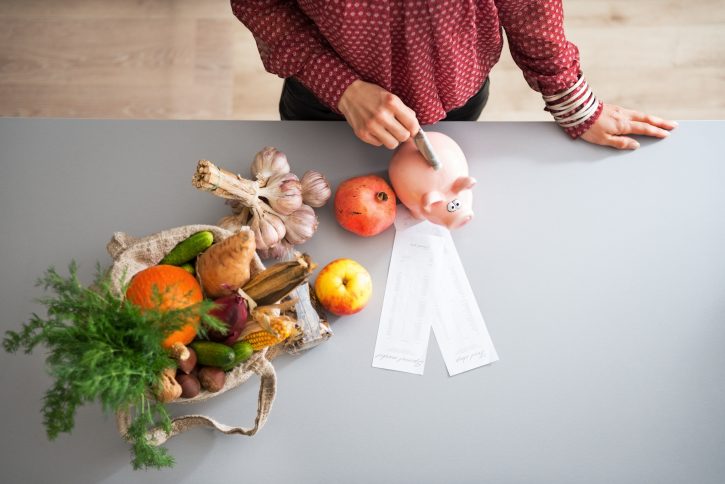
Tips to get the most out of your food budget
For many people, healthy eating is important, but they only have so much money set aside for food each week or month. With a little pre-planning, you can stick to your healthy eating goals without breaking the bank. Check out the tips below for ways to stretch your budget.
Plan what you’re going to eat.
Think through your week and work out your meals and snacks for the week. Check which ingredients you already have in your fridge or pantry, and make a list of what you need to buy. When shopping, stick to your list or use a grocery pick-up or delivery service to prevent straying from your list.
Cook once, eat twice.
Make a double batch of dishes that keep well to save time in the kitchen later on. Use extra portions for lunches, or freeze half for a quick meal in the future. Having leftovers on-hand can save you from choosing to eat out.
Decide where to shop.
Check ads for specials and coupons. Compare prices at different stores. Look for generic brands, which are often less expensive for the same quality. Sometimes buying larger packages leads to a lower price per unit – pay attention to the unit price on many price tags to determine what makes the best buy.
Shop in-season.
Usually produce that is in-season is less expensive. Buy extra and freeze for later.
Try canned or frozen produce.
Frozen and canned foods can often be less expensive than fresh. Just be sure they don’t contain added syrups, sauces or salt.
Choose nutritious, low-cost ingredients.
Choose recipes using low-cost ingredients that pack a powerful punch of nutrition. Look for meals that pair more expensive items – like fresh produce – with filling ingredients that are less expensive – like rice. A few suggestions include:
- Beans
- Peas
- Lentils
- Rice
- Eggs
- Peanut butter
- Canned fish
- Oats
- Sweet potates
- Frozen vegetables
Watch portion sizes.
Overeating adds up to extra calories and dollars. Talk to your healthcare provider about the proper daily caloric intake for you. Use smaller plates, bowls and glasses to help control portions. Divide meals into separate containers at the beginning of the meal and eat leftovers for the next day’s lunch or dinner.
Make your own snacks.
Convenience costs money. Individually packaged foods are not only costly to your wallet, but also the environment. Invest in reusable bags and containers. Buy full-size containers of snacks like trail mix, yogurt, cottage cheese, popcorn or others, and portion out into reusable containers.
Cook more at home.
Eating out less saves you money and can be nutritious than dining out. Choosing whole foods versus pre-cut or prepared items at the store will also save money.